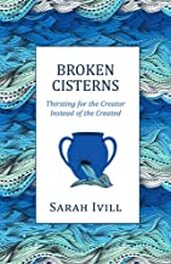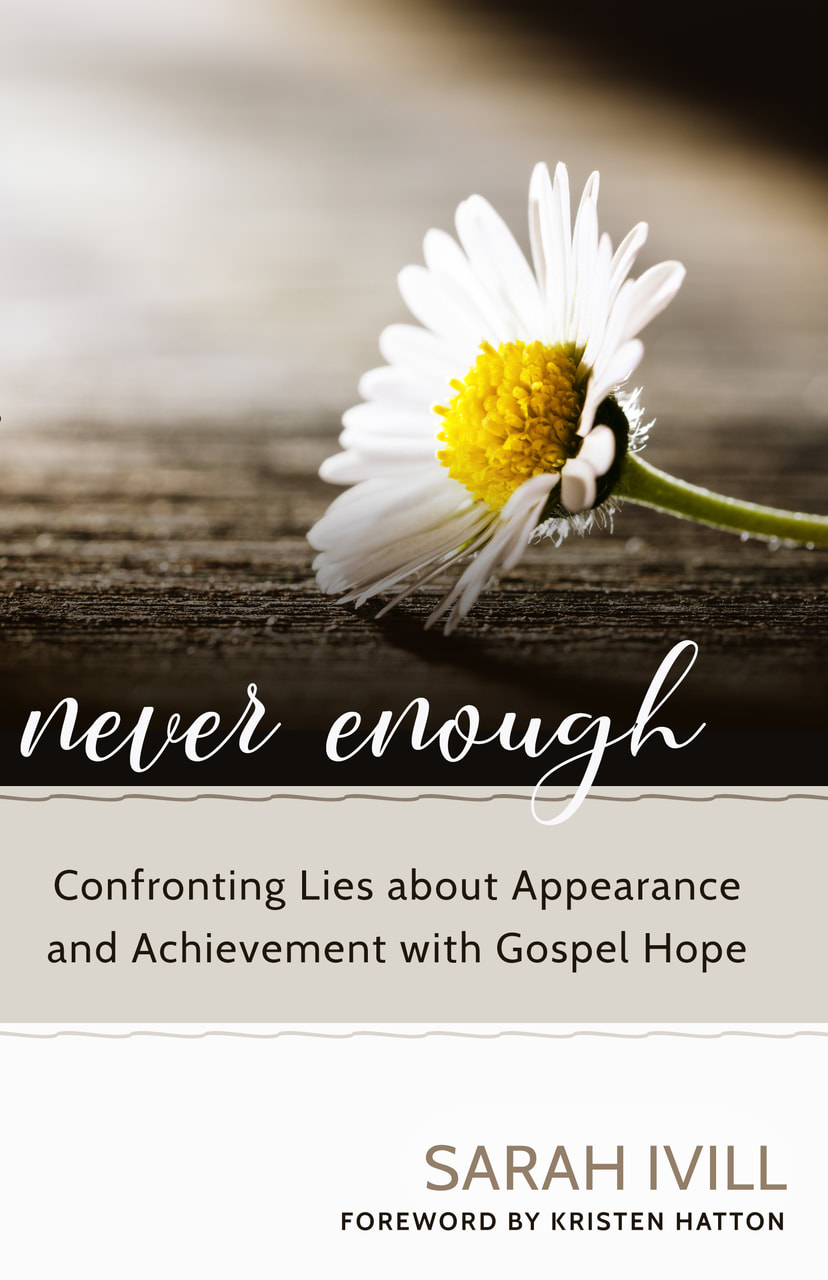|
This article was first posted on The Haven, my regular blog with The Alliance of Confessing Evangelicals. See original post here: www.placefortruth.org/blog/for-what-are-you-living.
If someone observed your life for a week, for what would they conclude you are living? Would they observe that you oppress others for power? Would they witness you being envious, foolish, a workaholic, or greedy? Would they say you pursue rugged individualism, or isolate yourself to gain power, position or prestige? The Preacher of Ecclesiastes observes these things in the people around him, and brings them to our attention in order to reveal for what we should be living (Ecc. 4:1-16). When the Preacher saw “the tears of the oppressed” with “no one to comfort them” he concluded that it would be better for them to be dead than alive, and even better to have never been born (Ecc. 4:1-3). In a broken world oppression is a sad but true reality for many people. But the Lord sees the affliction of His people, hears their cry, and knows their sufferings. He demonstrated this when He delivered the oppressed Israelites out of the land of Egypt (Ex. 3:7-10). But He most fully demonstrated this when He sent His Son into the world “to set at liberty those who are oppressed” (Luke 4:18). Ironically, our liberty came at the cost of His oppression. But it was through the cross that God “disarmed the rulers and authorities and put them to open shame, by triumphing over them” (Col. 2:15). Thankfully, there is coming a day when oppression will be no more. In the new Jerusalem, “God himself will be with [His people] as their God” and “will wipe away every tear from their eyes” (Rev. 21:3-4). In the meantime, we live in the midst of a fallen world where we will witness oppression. Therefore, the church needs to do everything she can to comfort and help the victims in the name of Jesus Christ. If power drives the oppressor, then envy drives the workaholic (Ecc. 4:4). But gaining in toil and skill motivated by envy of one’s neighbor gets one nowhere in the end. “Bitter jealousy and selfish ambition” is “earthly, unspiritual, demonic” and leads to “disorder and every vile practice” (Jas. 3:14-16). Neither does the fool gain anything who “folds his hands,” so that he can’t even provide food for himself, much less his family (Ecc. 4:5). Poverty will be the result of such senselessness (Pr. 6:6-11; 24:30-34). The apostle Paul warns, “if anyone does not provide for his relatives, and especially for members of his household, he has denied the faith and is worse than an unbeliever” (1 Tim. 5:8). There is also no gain in being a workaholic, but what is profitable is “a handful of quietness” (Ecc. 4:6). Believers are “to aspire to live quietly, and to mind your own affairs, and to work with your hands” (1 Thess. 4:11). We are to “lead a peaceful and quiet life, godly and dignified in every way” (1 Tim. 2:2). We are to adorn ourselves “with the imperishable beauty of a gentle and quiet spirit, which in God’s sight is very precious” (1 Pet. 3:4). Greed is another sin that is not to characterize the believer (Ecc. 4:7-8). When a person lives only for their own interests, they will never find true satisfaction. They may deprive themselves of time with friends, entertainment, and other pleasures of this world, in order to work to attain money, but in the end they are unhappy. Jesus tells us that “you cannot serve God and money” (Matt. 6:24). One of the requirements for leaders in the church is that they not be “a lover of money” or “greedy for dishonest gain” (1 Tim. 3:3, 8). Seeking satisfaction in worldly riches will never satisfy because “moth and rust destroy” and “thieves break in and steal” (Matt. 6:19). We will only be satisfied when we “seek first the kingdom of God and his righteousness” (Matt. 6:33) Individualism and isolationism are also not to characterize the believer. “Two are better one” (Ecc. 4:9) is not just the Preacher’s idea, but God’s idea, “It is not good that the man should be alone” (Gen. 2:18). Doing life together in the context of community is not just a suggestion, but an imperative in Scripture (see, for example, Heb. 10:24-25; 1 Pet. 4:10). The only community that will endure is the church. In the new heaven and the new earth believers will together worship the Lamb of God for all eternity. Let us, then, be “of the same mind, having the same love, being in full accord and of one mind” and “in humility count others more significant than yourselves” (Phil. 2:2-3). To illustrate the point that the quest for position, power and prestige holds no lasting benefit, the Preacher tells a tale of two men (Ecc. 4:13-16). One is a poor, wise youth and the other an old, foolish king. Although the wise youth went from poverty to palace, replacing the foolish king, and enjoyed a time of successful leadership with throngs of followers, his name and fame did not last. And so it is for all of us. The names that we create for ourselves and the fame that we establish have no lasting value. Death brings an end to our lives. Generations come and go. History books are updated. Our trophies end up in the trash. Our diplomas turn to dust. Our publications go out of print. We must not live for things that have no eternal value. Instead, we must put God at the center of our story, and live for Him, “for where your treasure is, there your heart will be also” (Matt. 6:21). This article was first posted on The Haven, my regular blog with The Alliance of Confessing Evangelicals. See original link here.
It’s sad, but true. If we fail to love our neighbor as ourselves and instead bite and devour one another, we will be consumed (Gal. 5:14-15). You have seen this in your relationships with family and friends. You have witnessed this between children fighting over a toy. You have observed this between married couples. The very things that we do, or the words that we speak, in order to hurt another person actually harm us too. The War of the Heart Paul’s exhortation, “walk by the Spirit, and you will not gratify the desires of the flesh” (Gal. 5:16), warns us that there’s a war within our hearts. There are two desires within us, those of the flesh and those of the Spirit, and both cannot win. Although “the law of the Spirit of life has set you free in Christ Jesus from the law of sin and death” (Rom. 8:2), these fleshly desires are so strong that we often succumb to them. Thankfully, there is hope. God’s power “has granted to us all things that pertain to life and godliness” (2 Pet. 1:3). The truth that there are two opposing desires within you may seem daunting, but don’t let it be debilitating. The same power that raised Jesus from the dead is at work in our hearts to empower us to fight the battle with the Word of God and prayer. The Works of the Flesh You will know if the flesh is winning the war of your heart, or your loved one’s heart, because works of the flesh are obvious. Paul gives us some examples—sexual immorality, idolatry, strife, anger, and envy (Gal. 5:19-21). Sadly, several of these sins are acceptable today, even in the church. But Paul gives a sober warning, “those who do such things will not inherit the kingdom of God” (Gal. 5:21). Paul is not speaking here about the Christian person who commits a sin like anger, confesses it to the Lord, then strives to turn away from it. Every true believer will inherit the kingdom of God (Rom. 8:28-30). But this warning should still lead us to carefully examine our hearts. If we are indulging in works of the flesh on a regular basis, we need to evaluate our relationship with the Lord. The Way of the Spirit The person who has repented of their sin and trusted in Christ alone for salvation will display the fruit of saving faith. When the Spirit converts us, He takes up residence in our hearts and begins to transform us. Paul gives us examples of what the Spirit produces in our hearts, such as love, joy and peace (Gal. 5:22-23). There is no law against such godly attributes because they don’t need to be restrained. Let’s look briefly at the fruit of the Spirit Paul mentions. Love. We display our love for God when we obey His will. We display our love for one another when we lay down our lives in selfless service, being God-oriented and others-oriented instead of self-oriented (see Matt. 22:37-39; John 15:9-10, 13-14). Joy. When we abide in Christ’s love by obeying His commandments we will be filled with joy. Such joy is a witness to others of our great love for our Lord and Savior (John 15:11; 1 Pet. 1:8). Peace. In light of the truth that Jesus reconciled both Jews and Gentiles to God in one body through the cross (Eph. 2:14-16), we are to extend peace and reconciliation to others. Patience. Since the Lord is compassionate and merciful, we are to be patient in suffering, and patient with others, not grumbling against them but remaining steadfast in the Lord’s purposes. Kindness. The Lord has shown His kindness to us by accomplishing our redemption. Therefore, we are to be kind to others, pointing them to the Redeemer with gracious words and works. Goodness. The goodness of the Lord has to do with His uprightness, righteousness and justice (Ps. 33:4-5). So we are to be concerned with good character and good works. Faithfulness. Because the Lord is faithful to keep us from stumbling and to present us blameless on the last day (Jude 24), we are to remain faithful to him, even unto death (Rev. 2:10). Whether under persecution, at the neighborhood park or pool, or among co-workers who may not respect our beliefs, we are to remain a bold witness for Christ. Gentleness. Jesus declared “I am gentle and lowly in heart” (Matt. 11:29). As we rest in Him, the Spirit will transform our hearts with the beauty of a gentle and quiet spirit, which is very precious in God’s sight (1 Pet. 3:4). Self-control. Jesus perfectly submitted to His Father’s will, even unto death on the cross. The Holy Spirit strengthened Him when He was tempted by the devil in the wilderness (Luke 4:1-13), and it is the Holy Spirit who strengthens us against temptation, giving us self-control, so that we can live a godly life. Since this is the fruit of the Spirit, what part do we play? The answer is found in Galatians 5:24, “And those who belong to Christ Jesus have crucified the flesh with its passions and desires” (italics mine). By the Spirit’s power, we must take our sin and put it to death by partaking of the means of grace. Dear Christian, sit underneath gospel-centered preaching on the Lord’s Day. Read and study Scripture everyday. Partake of the Lord’s Supper. Pray regularly. And enjoy fellowship with other believers who will encourage you toward godliness. The war of the heart is only won by way of the Spirit. This article was first posted on The Haven, my regular blog with The Alliance of Confessing Evangelicals. See original link here.
What do we do when suffering breaks into our lives like an unwelcome intruder, when a diagnosis comes at an inconvenient time, when we feel disillusioned and full of despair? Where do we turn when we are scared, sad, and sobered at the fragility of our lives or the lives of our loved ones? This summer I had a routine skin check at my dermatologist. After having eight biopsies done, I left the office with words of assurance ringing in my ears that everything would be fine and there was no need to worry. But two weeks later I heard those dreaded words from my doctor, “You have cancer.” Malignant melanoma. Left untreated she predicted I had less than two years to live. As I processed her words, I thought about not being able to see my four children grow up, not being able to grow old with my husband, not being able to serve Christ and His church through speaking, writing and teaching for many more years. I was sad and scared. In the quiet moments of the night, when the rest of my family slept, I wept and prayed and read God’s word. I ran to my Shepherd, my Savior, who has promised to never leave me or forsake me. Psalm 23, which was composed by King David, tells us this wonderful truth. The Shepherd David, having been a shepherd himself, writes about the Lord as his shepherd. The king of Israel, who was mighty in battle and royal in court, also faced many dangerous situations, as recorded in 1-2 Samuel. Psalm 23 sprung from a soul satisfied by the chief Shepherd. Several things are noteworthy about this psalm. First, the Lord does not withhold what His people need, “The LORD is my shepherd; I shall not want” (Ps. 23:1). We are prone to worry, but the Lord promises to completely care for us. Second, the Lord gives His people rest, “He makes me lie down in green pastures. He leads me beside still waters” (v. 2). The Lord offers us rest in Him so that we can stop running our own lives, running around trying to find life, and running scared from life. Third, the Lord “restores my soul” (v. 3). We are prone to sin, but the Lord saves us and satisfies our soul. Fourth, the Lord “leads me in paths of righteousness for his name’s sake” (v. 3). We are prone to wander, but the Lord keeps our feet on the right road. Finally, the Lord comforts us in “the valley of the shadow of death” (v. 4). We are prone to fear, but the Lord doesn’t let our foot falter. Though His sovereignty and providence take us through suffering, He is with us. Therefore, we can say with David, “I will fear no evil, for you are with me; your rod and your staff, they comfort me” (v. 4). Jesus fulfills Psalm 23, “I am the good shepherd. The good shepherd lays down his life for the sheep” (John 10:11). The suffering soul can cling to Christ, the chief Shepherd, knowing that He is our Comforter in the valley of deep darkness. The Supper The Lord not only provides shelter as a shepherd, He also provides sustenance at His supper. The covenant Lord extends an invitation to us to partake in a covenant meal, “You prepare a table before me in the presence of my enemies; you anoint my head with oil; my cup overflows” (v. 5). With enemies defeated and a privileged position at the table, David is convinced of the covenant love of the Lord. The Lord’s covenantal love, His mercy and goodness, will pursue David as vigorously as his enemies ever had, indeed, more so, “Surely goodness and mercy shall follow me all the days of my life” (v. 6). David’s seat at the table is not a possibility, but a certainty, and it is for eternity, “I shall dwell in the house of the LORD forever” (v. 6). All those who are in Christ have been invited to the marriage supper of the Lamb. We will sing a different song than Psalm 23 there. As the bride, we will sing a song to the Lamb, our Bridegroom, giving Him glory (see Rev. 19:6-8). In the meantime, we are invited to partake of the Lord’s supper in anticipation of the future wedding feast, and in appreciation of His past faithfulness, exalting Jesus as our Shepherd and as our King. Melanoma is aggressive, deadly and can spread very quickly. Thankfully, my doctor squeezed me into her schedule for surgery and two weeks later the pathology report came back with clear margins, showing that the surgery had been successful at removing the cancer. Our family and our church family rejoiced. We celebrated the tender care of our Shepherd “whose goodness and mercy shall follow me all the days of my life” (Ps. 23:6). Dear believer, has suffering broken into your life like an unwelcome intruder? Has a diagnosis come at an inconvenient time? Do you feel disillusioned and full of despair? Are you scared, sad and sobered at the fragility of your life or the lives of your loved ones? Run to the Shepherd of your soul. He will lead you. He will be present with you. He will comfort you. And His goodness and mercy will follow you until you reach “the holy city, new Jerusalem,” in which “death shall be no more, neither shall there be mourning, nor crying, nor pain anymore,” and we “will see his face,” the face of our beloved Shepherd (Rev. 21:2, 4; 22:4). Sarah Ivill (ThM, Dallas Theological Seminary) is a Reformed author, wife, homeschooling mom, Bible study teacher, and conference speaker who lives in Matthews, North Carolina, and is a member of Christ Covenant Church (PCA). To learn more, please visit www.sarahivill.com. This article was first posted on The Haven, my regular blog with The Alliance of Confessing Evangelicals. See original link here.
For many people January is the month of new beginnings. By now, some of you have made it a few weeks on your new diet or exercise program, Bible reading plan, caffeine-free mornings, social media fast, budget, or endeavor to read more books. These are all good goals, but they pale in comparison to the new beginning Paul speaks about in Ephesians 4:17-32. Upon conversion we receive “a new heart, and a new spirit” (Ezek. 36:26). But throughout the Christian life we have to continually choose “to put off your old self” with corrupt and deceitful desires and “to put on the new self, created after the likeness of God in true righteousness and holiness” (Eph. 4:22-24). In order to put on the new self, Paul says we need “to be renewed in the spirit of your minds” (Eph. 4:23), which comes by reading and studying the word of God. By the illuminating work of the Holy Spirit, Scripture suffocates the sins of sensuality, greed, and impurity that linger in our hearts. Paul’s exhortation to put on the new self is far more radical than a personal makeover. Believers are to “put away falsehood” and “speak the truth” (Eph. 4:25). We are not to prejudice the truth in any way; harm the good reputation of our neighbor or ourselves; give false evidence; conceal the truth; slander; backbite; gossip; misconstrue intentions; or look with contempt upon others (WLC, A. 145). Instead, we are to preserve and promote truth in all circumstances; love, desire, and rejoice in the good reputation of our sister or neighbor; recognize and rejoice in their gifts and graces; and defend their character as we would our own (WLC, A. 144). This is necessary because we are members of each other. Not only are we in a covenant relationship with God, we are also in a covenant relationship with each another. Our speech either maintains or destroys the unity and purity of the church. Therefore, we must be very careful how we speak. Paul also exhorts Christians to “not let the sun go down on your anger” (Eph. 4:26). We’re not to hate, envy, take revenge, provoke, oppress, quarrel with, or wound others in any way (WLC, A. 136). When we are tempted to get angry, we should extend to others kindness, love, compassion, gentleness, peace, and forgiveness (WLC, A. 135). Jesus says that anger is a form of murder (see Matt. 5:21-22). When we let anger fester in our hearts it becomes a foothold for the devil. In addition, Paul says, “Let the thief no longer steal, but rather let him labor” (Eph. 4:28). Believers are not to take or withhold anything that belongs to our neighbor, or desire to have their goods and gifts in place of the ones the Lord has given us (WLC, A. 142). Instead, Christians are to work hard with their hands. Whatever abilities and gifts the Lord has given us, we are to use those to gain an honest living. As the Lord provides for our needs, we should respond with hearts of gratitude and hands of generosity. Furthermore, Paul says, “let no corrupting talk come out of your mouths” (Eph. 4:29). We are not to tear down another person in order to control a desired outcome, build up our reputation, or gain comfort and convenience. Instead, we are to use our words to build the other person up and be sensitive with regard to the timing of the words spoken. Just as God in Christ has given grace to us, we are to give grace to others. Think of how our conversations would be transformed if we cultivated an atmosphere of edification and encouragement! Also, believers should “not grieve the Holy Spirit of God” (Eph. 4:30). Let us pray for the Lord to deliver us from such sins as anger, drunkenness, envy, impurity, jealousy, and sexual immorality. Since the Spirit of God has sealed us for the day of redemption, let us live now in light of what we will one day be—glorified saints who behold our beloved Lord and Savior face to face. Finally, “Let all bitterness and wrath and anger and clamor and slander be put away from you, along with all malice” (Eph. 4:31). Bitterness fails to recognize God’s blessings. Wrath fails to recognize His redemption. Anger fails to accept the Almighty’s ways. Clamor fails to give control to God. Slander fails to recognize God’s supremacy and salvation. And malice fails to recognize the Master Judge over all. Such sins grieve the Spirit and are improper for Christians. Paul tells us what we need to put on in their place, “Be kind to one another, tenderhearted, forgive one another, as God in Christ forgave you” (4:32). As you continue to pursue your goals for 2022, remember to “put on the new self, created after the likeness of God in true righteousness and holiness” (Eph. 4:24). Christ has set us free from our old self, so that we might live for Him. Therefore, let us renew our minds in the Word, speak truth, turn from anger, do honest work, encourage others, be kind and tenderhearted, and forgive one another, just “as God in Christ forgave you” (4:32). (This article was first posted on enCourage. See original link here.) SARAH IVILL|CONTRIBUTOR Have you ever asked questions like these?: Why am I suffering when I have sought to please the Lord? Does God really love me? Will God forgive me of this sin? How do I handle my child’s anger? How do I live a life of purity in a sex-crazed culture? What is the purpose of my life? Will the Lord save my parents, my in-laws, my siblings, my best friend? What do we do when such questions spring from our hearts? Perhaps the most common way is to proclaim God’s sovereignty or love. But I want to suggest that we also speak about God’s wisdom. From creation to the consummation God reveals that He is the only wise God. He is the Creator and He is the King. God’s Wisdom in Creation In six days God spoke light, heaven, earth, seas, plants, trees, sun, moon, stars, sea creatures, birds, and beasts of the earth into existence. He also formed man out of the dust from the ground and breathed into his nostrils the breath of life. Then He made woman from one of man’s ribs (Gen. 1-2). Significantly, God’s wisdom in creation is one of the ways God responds to Job’s interpretation of his suffering (see Job 38:4-11). When we cannot understand God’s ways in our lives, the remedy is not found in understanding what God is doing, but in knowing God. He is the all-wise Creator. The New Testament reveals another mystery of God’s wisdom at creation. God the Father created the world through the Son by the Spirit (John 1:1-3). Not only were all things created through Christ. They were created for Christ (Col. 1:15-17). God’s Wisdom Forsaken in the Fall Sadly, God’s perfect creation became subject to futility and in bondage to corruption (Rom. 8:20). Into the gorgeous garden, God’s enemy entered in disguise. He approached Eve and questioned God’s wisdom. Tragically, she took the bait and sinned. God’s Wisdom in Redemption Because the Lord is wise, He had a perfect plan when Adam and Eve sinned. And He executed it immediately, “I will put enmity between you and the woman, and between your offspring and her offspring; he shall bruise your head, and you shall bruise his heel” (Gen. 3:15). The story of salvation that begins in the Old Testament consistently reveals God’s good and wise plan through prophets, priests and kings, feasts and festivals, sacrifices and ceremonies, in order to point His people to the Redeemer. When we come to the New Testament we learn that Jesus Christ became to us wisdom from God (1 Cor. 1:30). Remarkably, one of the mysteries of God’s divine plan is His inclusion of the Gentiles in saving a people for His own glory. Significantly, Paul cannot talk about God’s salvation of the Gentiles without speaking of God’s wisdom, indeed, breaking into praise of God’s wisdom (see Rom. 11:33-36). God’s wisdom should motivate us not only to worship, but also to witness. God’s Wisdom in the Consummation When God’s plan of redemption is consummately fulfilled in the new heaven and the new earth, His wisdom will be supremely revealed. The songs of worship in the new creation will exalt God’s wisdom (see Rev. 5:9-12; 7:9-12). Significantly, these songs connect God’s wisdom with God’s plan of redemption, specifically His plan to save a people from every tribe, tongue and people. The Practical Value of God’s Wisdom What does God’s wisdom have to do with the fight you and your husband had last night? How does it relate to your broken heart over your son who told you he was gay? How does God’s wisdom comfort you as you weep by the grave of your loved one? When you get an unfavorable review from your boss or professor, why does God’s wisdom matter? When you have bitterness and jealousy toward all your social media friends because they seemingly have a picture-perfect life, how do you find freedom in God’s wisdom? In your suffering, in your battle against sin, and in your service, God’s wisdom is both necessary and available. First, recognize God’s wisdom (Rom. 11:33). Our circumstances have not caught Him off guard. He orchestrates everything in our lives by His wise plan. Recognize this. Second, rest in God’s wisdom (Rom. 11:33). When we want to fight Him, when we want to scream, “No, don’t let this happen,” when we want to turn our backs and run away from Him. Don’t. Rest in His wisdom. Third, request God’s wisdom (Jas. 1:5). When you don’t know what to do, run to Christ and request His wisdom first. Then reach out to godly family, friends, and counselors. Fourth, reflect God’s wisdom (Jas. 3:13-18). In every situation, we are called to reflect the purity, peace, gentleness, reason, mercy, impartiality and sincerity of God’s wisdom. Fifth, recite God’s wisdom (Col. 1:28; 3:16). We are to warn and teach everyone with all wisdom, proclaiming Christ, so that we may present those under our care, mature in Christ. To do this, we must first let the word of Christ (the Scriptures) dwell in us richly. Father, help us to recognize your wisdom, rest in it in the midst of suffering and our battles against sin, request it continually, reflect it in our interactions with others, and recite it to the next generation. We know we cannot do this on our own, so we plead for the power of your Holy Spirit to make us wise. In Jesus’s Name we Pray, Amen. (This article was first posted on enCourage. See original link here.
SARAH IVILL|CONTRIBUTOR One of the things I love to do is sing covenant theology with my children. We have CDs that put the First Catechism: Teaching Children Bible Truths to music, as well as CDs that put the Westminster Shorter Catechism to music. I love both! I have found that we learn the questions and answers better when we sing them. Not only do I love to hear my children sing these truths, I love to sing them too. Whether I’m singing the catechism while doing chores, or while homeschooling, the truths of covenant theology comfort me. Perhaps comfort isn’t the first thing you think of when you hear “covenant theology.” Maybe you’re not even sure what covenant theology is, or if you do, maybe you aren’t confident in explaining it to others. I want to help you associate covenant theology with comfort, and hopefully be better able to teach it to others. We need comfort on a daily basis, and we don’t want to get it from the wrong sources, such as food, shopping, or media. We want to remember that the covenant-making and covenant-keeping God is with us in our physical pain. He is with us in that messy relationship. He is with us as we battle habitual sin. And He is with us as we engage in service. Five Ways Covenant Theology is a Comfort Covenant theology is a comfort because it teaches us that God is the Creator and Redeemer who wants to be in a relationship with His people. He created us to glorify Him and enjoy Him forever, so our greatest satisfaction will always be found in Him. He could have chosen to relate to His people in any number of ways, but He chose to relate to us by way of covenant. We could not have initiated a relationship with God, but amazingly He initiated one with His people. This isn’t a relationship that can be broken; it’s binding. And this isn’t a relationship without structure. It’s grounded in His grace and promises. Furthermore, this isn’t a relationship without security. The blood of God’s Son, Jesus Christ, secures it. Covenant theology is a comfort because it teaches us the promise of God’s presence. God dwells with His people. From the garden to the tabernacle to the temple to Christ to the consummation, God dwells with us. He is with us when friends reject us. He is with us in that challenging class in graduate school. He is with us when our job is difficult, or we lose our job. He is with us in relational difficulties. He is with us when the diagnosis is given. He is with us when divorce papers are served. He is with us when our child walks away from the faith we hold so dear. He is with us as we bury our loved ones. Covenant theology is a comfort because it teaches us about the person of Jesus Christ. He is the final and perfect prophet, priest, and king. He is the center of the story of salvation. He reveals God’s will for our salvation. He has reconciled us to God and intercedes for us. He rules over us and defends us from our enemies. Covenant theology is a comfort because it teaches us about the people of God. God calls out a people for Himself from every tribe, tongue and nation to worship Him, work for His glory and witness of His great name. Together we worship the triune God each Lord’s Day. Together we use our gifts to work for His glory. Together we tell others about Jesus. When I battle sin, it’s a comfort to know I can reach out to the family of God to pray for me. When I am suffering, it’s a comfort to know I can call on the body of Christ for tangible needs. As I serve, it’s a comfort to know that my brothers and sisters are supporting me and interceding for me. Covenant theology is a comfort because it teaches us that the practice of God’s people is supposed to be different. We’re supposed to feel like aliens and exiles as we interact with the world around us (Heb. 11:13-16). In light of our salvation, we are called to love God and others. We are called to trust Him. We are given the privilege of enjoying Him by way of union with Christ. We are called to obey Him. We are also called to be prophets who proclaim the name of the greatest Prophet. We are called to be priests who offer our very lives to the High Priest. And we are kings who are called to fight against our enemies—the world, the flesh and the devil, by the power of the King of kings. In what situation or relationship do you need to be comforted today? Sing the truths of covenant theology. You will be reminded of the comforting promise, “I will be your God and you will be My people.” You will begin to understand God’s covenant love, His loyal lovingkindness, is to govern all your relationships with your family, friends, coworkers, and neighbors. And you will be filled with joy as you recall often who God is, the covenant Lord. Then look around you. There are people who need to be comforted. Sing or speak the truths of covenant theology to them. Together you will be comforted as you center your lives on God, exalt our beloved Lord and Savior Jesus Christ, and live in dependence upon the Holy Spirit. (This article was first posted on enCourage. See original link here). SARAH IVILL|CONTRIBUTOR Editor’s Note: The following is an adapted excerpt from Sarah Ivill’s new book, Broken Cisterns: Thirsting for the Creator Instead of the Created (Grand Rapids, MI: Reformation Heritage Books, 2020), 125-129 Have you ever said to someone “Just trust me?” We often say these words because we love the person and believe we have greater wisdom than they do in a particular situation. Likewise, our heavenly Father loves us so much that He wants us to trust Him. God Is Trustworthy God’s faithfulness and trustworthiness is rooted in His covenant. He has initiated a relationship with His people. This relationship does not depend upon our faithfulness but His, and it is secured by the blood of His Son, Jesus Christ. We see God’s trustworthiness as the history of salvation unfolds from Genesis through Revelation. In the entirety of the covenantal structure of Scripture, we learn that God is faithful to fulfill His promises. As Paul says, “For all the promises of God in [Christ] are Yes, and in Him Amen” (2 Cor. 1:20). Because God has been faithful to us and saved us, we can trust Him by the power of the Holy Spirit. Mary’s Trust in the Face of Fear At the appointed time, God sent the angel Gabriel to a virgin named Mary. The angel told her, “Rejoice, highly favored one, the Lord is with you; blessed are you among women!” (Luke 1:28). Mary was very troubled by the angel’s saying. However, the angel instructed her not to fear because she had found favor with God. She would have a son, and this son was to be named Jesus. He would be great and called the Son of the Highest. He would reign forever in an eternal kingdom. Mary questioned how this could be. The angel told her that the Holy Spirit would come upon her and that by God’s power she would conceive. The child she would carry would be called the Son of God. Mary replied to the angel, “Behold the maidservant of the Lord! Let it be to me according to your word” (1:38). Mary’s story displays what it means to trust the Lord. First, when Mary had every reason to fear, she responded in faith. Think about the last time you were gripped with fear. Maybe the career path you had chosen wasn’t going as you had expected, and you feared the outcome. Perhaps you, or a loved one, received a diagnosis that was difficult to hear and that drastically changed your lifestyle. Maybe you were headed on vacation and feared for your family’s safety, especially your young children’s. Perhaps you were afraid about how the difficulties in your marriage were going to turn out. Or maybe you feared your teenager being rejected by his or her peers. Perhaps you feared your parents’ aging process and the level of care they required. Or maybe you feared a hurricane that was projected to devastate your city. Whatever triggers it, and whenever it comes, fear is no fun. It paralyzes us by stealing our faith so that we falter in trusting God’s faithfulness. The cure is a return to recognizing who God is. He is almighty, beloved, eternal, exalted, faithful, good, holy, immortal, mighty, omnipotent, undefiled, and victorious. Second, Mary’s trust was grounded in the truth of Scripture. Her song of praise in Luke 1:46–55 echoes Hannah’s in 1 Samuel 2. She recognized that God is magnificent, merciful, gracious, mighty, great, holy, and strong in power. She worshiped Him as the Savior, Helper, and Covenant Keeper. She recognized that God has been faithful to His people throughout the ages. We don’t trust a God we don’t know. He has revealed Himself through His Word and His works, giving us every reason to trust Him. Trust for the believer is turning from the temptation to drink from broken cisterns to Jesus, the author and finisher of our faith (Heb. 12:2). Trust recognizes that our heavenly Father has the best plan for our lives. Trust understands that this plan isn’t going to go according to our plan. Trust is satisfied when our heavenly Father says no, or wait, to something we wanted. And trust takes Him at His word, believing His promises. The prayer of trust is the prayer of 2 Chronicles 20:12: “For we have no power against this great multitude that is coming against us; nor do we know what to do, but our eyes are upon You.” I prayed this prayer one night in my study when I didn’t know what to do in a relational difficulty. As tears stung my eyes, trust took root in my heart. I felt as though a great multitude of problems surrounded me that were too deep for me to solve. But I took great comfort in knowing I could trust the Lord, so I looked to Him. This kind of trust doesn’t mean that the letter denying you entrance into your top choice of graduate schools, or another dispute with your husband, or the road of infertility, or a life of chronic pain, or raising children, or caring for aging parents, will be easy. And you may still have to walk through the valley of the shadow of death. But in the midst of the hardships, God is with us and He is worthy of our trust. The next time you say “Just trust me” to someone you love, remember that your heavenly Father loves you and wants you to trust Him. (This article was first posted on enCourage. See original link here)
I am enjoying the first signs of spring in North Carolina. Flowers are beginning to bloom; the bare tree branches are beautifully clothed with green leaves. The grass is starting to grow. The sky is brilliant blue. And the sun shines brightly. But as I view all this beauty, I continue to experience chronic pain that has been my companion for over fourteen years now. This suffering within me reminds me that the beauty I see around me is far inferior to what will be revealed in the new heaven and the new earth. The most glorious spring day is only a glimpse and a taste of the beauty that is to come. And when that beauty comes, there will be no more pain. We will behold the face of our beloved Savior and live with Him for all eternity, free of sin and suffering. Romans 8 and Suffering In the meantime, the Scriptures do not tell us that we might suffer; they tell us that we will suffer. Thankfully, suffering for the believer is always filled with purpose. The Scriptures put suffering in the light of eternity. We must do the same. The apostle Paul tells us that the sufferings of this present time will not even compare with the glory that is to be revealed in us when Christ comes again (Rom. 8:18). In our suffering then, we need to fix our eyes on the future glory that awaits us and persevere as God preserves us. Eager Anticipation of Glory Paul teaches us in Romans 8 that both creation and those who have the firstfruits of the Spirit (believers) are suffering. But we suffer knowing the Holy Spirit secures every stage of salvation. This life is not the end. Glory awaits us! Those who have been justified will be glorified. Because we possess the Spirit as believers, we groan inwardly as we wait eagerly for adoption as daughters. We have already been adopted (v. 15), but there is a “not yet” aspect to this adoption—the redemption of our bodies. It is this for which we hope with patience. This is hard for us! Yet God calls us to it. In our suffering, we must persevere in worshiping God, accept His plan and timing for our circumstances, invite Him to be Lord over our desires, and trust Him in all things. The Spirit Helps Us As the hope of glorification sustains us through suffering, the Holy Spirit helps us in our weakness. Jesus told us that we would receive the Holy Spirit as our helper who would dwell with us and be in us (John 14:16–17). This is an amazing truth! We are weak, but He is strong. Our prayers are not great, but His are. The Spirit Himself intercedes for us with groanings too deep for words. Think about that. Not only do we have an intercessor in heaven, our Lord and Savior Jesus Christ (Rom. 8:34), but we also have an intercessor in our heart, the Holy Spirit of God, who intercedes for us according to the will of God. All Things Work Together In the midst of suffering, we are also assured that all things work together for good according to God’s purpose. How is this possible? First, before the foundation of the world, God chose us to be His children. Second, He initiated this relationship with us in order to conform us to His Son, Jesus Christ. Third, when God calls us the Spirit opens our eyes to our sinfulness, enlightens our minds to know Christ, renews our wills, and enables us to embrace Christ (Westminster Shorter Catechism 31). Fourth, God justifies His children. In Christ we are not guilty anymore! Jesus lived a life of obedience for us and died a cursed death to atone for our sins. Finally, God glorifies His children. He never leaves the process incomplete. God perseveres all those whom He calls until the day of glorification. God is For Us In the meantime, there are still suffering, sin, shame, and stressful service on this side of glory. But God is for us. It doesn’t matter who is against us because the One who is for us is greater than all the forces that could possibly be against us combined. God has already done the greatest and most loving act by giving up His Son for His children (see John 3:16–17), so surely He will do the lesser thing of graciously giving us His peace, power and presence in the midst of our pain. “For I am sure that neither death nor life, nor angels nor rulers, nor things present nor things to come, nor powers, nor height nor depth, nor anything else in all creation, will be able to separate us from the love of God in Christ Jesus our Lord” (Rom. 8:38-39). When I’m tempted to despair on difficult days when the pain seems unbearable, I remember the truths of Romans 8—my suffering is part of life in this fallen world; in the midst of it I can eagerly anticipate the glory that awaits me in the new creation with a resurrected body that will no longer experience pain and will enjoy perfect fellowship with our beloved Savior, Jesus Christ; I can count on the Spirit to strengthen me in my weakness; this suffering is part of God’s plan for my life, bringing about His glory and my good; and God is for me in this suffering. The same is true for you today. Whatever suffering you are experiencing, God is with you and for you. He will not leave you alone but will display His power through your weakness. (This article was first published on the Revive our Hearts Leader Connection Blog. See original link here.)
In the fall of 2017, a woman at my church who taught a Bible study asked if I would come and share my testimony with her class, composed mostly of young professionals. She had remembered reading in one of my Bible studies that I had battled an addiction to thinness and fitness, and she thought it would benefit the group to hear it. To be honest, I was nervous. I had been serving in women’s ministry for years, but my story of how God had rescued me from an addiction in my teens and early twenties had been relegated to a few short introductions in a book or Bible study I had written. I had never before gone back to my prayer journals from my younger years with the intention of speaking on the topic, much less writing a book about it. Yet as a result of the response I received from sharing my testimony, and after one of my pastor’s wives encouraged me that my testimony was something that needed to be heard in middle schools, high schools, and college campuses, as well as women’s Bible studies, I found myself, in God’s Providence, writing my story (God’s story) to the next generation, telling them about my addiction in order to help them, and those who ministered to them, confront lies about appearance and achievement with gospel hope. Comforting Others with the Comfort We’ve Received In some ways my story was easy for me to write. After all, it’s relatively simple to tell your own story. But in another sense the fact that it is my story also made it one of the hardest. I am not proud of the lies my flesh has been so prone to believe. And I’m not proud of the actions I’ve taken because of it. But God’s Word says, “Blessed be the God and Father of our Lord Jesus Christ, the Father of mercies and God of all comfort, who comforts us in all our affliction, so that we may be able to comfort those who are in any affliction, with the comfort with which we ourselves are comforted by God” (2 Cor. 1:3–4). My Story: Twin Lies About Beauty and Performance At the beginning of my sophomore year of high school, I was sitting around with my cross-country team listening to the older girls compare fat grams in bagel brands. Little did I know how influential that conversation, and many more like it, would become in my life. Add to that the billboards, magazines, and other media that boasted model-thin women all around me, and I bought into the lie “I have to look like ‘her’ in order to be beautiful.” In other words, I believed that my worth was based on my outward appearance. At the same time I was running cross-country, I was also playing basketball. Unlike the girls on my cross-country team, my teammates on my basketball team were not having conversations about fat grams in bagel brands. They could down a fast-food burger in no time at all and not think twice about it. And my coach certainly thought I could use a few burgers myself in order to put on some weight for my position as forward or center. There was another conversation going on though within basketball that was just as influential and just as damaging as the one on my cross-country team. It really wasn’t a conversation at all. It was a coach with a temper who could fire off a cuss word, stomp his feet, clap his hands, and throw water, attempting to motivate us to play better and harder. Failing to live up to his expectations and thinking my significance was based on success as he defined it led me to believe another lie: “My worth is based on my outward performance.” Failure to perform well led me to inflict punishment on myself, which matched perfectly with the motivation behind the other lie—if I didn’t live up to my coach’s expectations, then I didn’t deserve to eat. These twin themes of body image and performance are still at the heart of young women’s search for beauty and worth today. But it is not just young women. Women of all ages struggle with defining their significance by their appearance and achievements. God’s Intervention By the time I was in college, my addiction to thinness and fitness was raging. But God intervened. I still remember sitting in my Hebrew class during my final exam with tears streaming down my face as I translated the verses in Jonah 2:5–6 from Hebrew to English: The waters closed in over me to take my life; the deep surrounded me; weeds were wrapped about my head at the roots of the mountains. I went down to the land whose bars closed upon me forever; yet you brought up my life from the pit, O LORD my God. Deliverance would not come overnight, but this was a turning point for me. If the Lord could radically deliver Jonah from the pit he was in, then He could also deliver me from what seemed like a prison. The hope that I had not found in a secular counselor’s office, a support group for those battling addictions, or a nutritionist’s office I found in the Word of God. It cut through the lies and gave me truth upon which to stand. This would prove critical over the next few years as I fought for freedom from my addiction. Deliverance Through Battling Lies with Truth By the time I reached seminary, I really wanted my addiction to thinness and fitness to be over. I had recognized my sin of trying to serve two masters. I realized that fitness and food had become idols in my life. I knew this because I had to exercise and eat healthy every day in order to feel good about myself. I wouldn’t even miss exercise and healthy eating on a vacation because somewhere along the way I started relying on exercise and healthy eating for my hope and happiness, my significance and security. I remember keeping a journal in which I would write down every lie that came across my mind and counter it with a scriptural truth. For example, if I thought I looked fat, I challenged whether or not that was really true (it wasn’t), and then I moved on to passages that spoke of God looking at the heart instead of the outside of man (1 Sam. 16:7). At some point, I also stopped weighing myself, recognizing that it could lead me down a pathway of destruction. And I started bouncing my eyes off billboards and magazines, recognizing those could also lead me down a pathway of deceit. So I was striving hard to put this addiction behind me. And since seminary days were an immersion of studying Scripture, in God’s Providence I was at a great place for healing. Deliverance Through the Community of Believers But there was another dimension that was just as important as being immersed in truth, and that was being surrounded by the community of believers, some of whom I confided in regarding my addiction. This was helpful in numerous ways. First, I wasn’t fighting alone. Individuals make terrible armies. But I had a group of sisters fighting with me. Their prayers, accountability, and encouragement meant a great deal to me. Second, when I confessed my sin to the Lord and to my sisters, it didn’t seem to hold as much power over me. My sin was exposed. People knew. And in the publicity of it I began to see it for what it really was—lies I had believed. My worth isn’t based on my outward appearance. It is based on the person and work of Jesus Christ. And my worth isn’t based on my outward performance. It is based on the perfect performance of Christ on my behalf. The Truth Will Set You Free It is the gospel that set me free—and continues to set me free when I’m once again tempted to believe the lies. The Lord ingrained deeply in me the Truth that Christ is enough for me. In a culture where we often compliment external beauty, even in the Church, I needed someone to remind me that I’m not pretty apart from Christ, and no amount of makeovers or designer dresses will fix that. Apart from Christ, I am ugly and dead in my sins. I also needed someone to tell me that I will never perform perfectly and to seek perfection is futile. Christ alone is perfect. Knowing the truths that I didn’t have to be thin and fit to be loved; that I didn’t have to perform perfectly to be accepted; and that I am beautiful, loved, and accepted in Christ because Christ has performed perfectly and died for me was tremendously freeing. Women all around us are ensnared in lies about appearance and achievement. As we share our stories and struggles with them with the intent of magnifying God’s larger redemptive story, they often feel comfortable to share their own story. As they do, we can help them understand their story in light of God’s story, helping them see His providential hand in their life, and pointing them to the hope of the gospel. This can be intimidating for us, especially as leaders, but creating a culture within our ministry spheres that intentionally invites women to share their stories to magnify God’s story is crucial. Instead of disqualifying us from ministry, God’s grace and forgiveness in our lives is a door of opportunity for women to see the power of the gospel of Christ. *This article is adapted from the Introduction of Sarah Ivill’s book, Never Enough: Confronting Lies About Appearance and Achievement with Gospel Hope (Grand Rapids, MI: Reformation Heritage Books, 2019). (This article was first posted on enCourage. See original link here).
It was my sophomore year of high school, and I was sitting around with my cross-country team listening to the older girls compare fat grams in bagel brands. If you have ever looked at bagel labels, you know that there is not any difference worth noting—unless you are obsessed with your weight. The Lies of Appearance and Achievement Little did I know how influential that conversation, and many more like it, would become in my life. Add to that the billboards, magazines, and other media that boasted model-thin women all around me, and I bought into the lie “I have to look like ‘her’ in order to be beautiful.” At the same time I was running cross-country, I was also playing basketball. Unlike the girls on my cross-country team, my teammates could down a fast-food burger in no time at all and not think twice about it. And my coach certainly thought I could use a few burgers myself in order to put on some weight for my position as forward or center. Add to that the fact he could fire off a cuss word, stomp his feet, clap his hands, and throw water, attempting to motivate us to play better and harder and I began to believe another lie: “My worth is based on my outward performance.” Failure to perform well led me to inflict punishment on myself—if I didn’t live up to my coach’s expectations, then I didn’t deserve to eat. These twin themes of body image and performance are still at the heart of young women’s search for beauty and worth today. But it is not just young women. Women of all ages struggle with defining their significance by their appearance and achievements. Confronting the Lies By the time I reached seminary at the age of twenty-one, I really wanted my addiction to thinness and fitness to be over. I recognized my sin of trying to serve two masters. I realized that fitness and food had become idols in my life. I knew this because I had to exercise and eat healthy every day in order to feel good about myself. Somewhere along the way, I started relying on exercise and healthy eating for my hope and happiness, my significance and security. Since seminary days were filled with an immersion of studying Scripture, I was at a great place for healing. The hope that I had not found in a secular counselor’s office, a support group for those battling addictions, or a nutritionist’s office, I found in the Word of God. It cut through the lies and gave me truth upon which to stand. But there was another dimension that was just as important as being immersed in truth, and that was being surrounded by the community of believers, some of whom I confided in regarding my addiction. This was helpful in numerous ways. First, I wasn’t fighting alone. My sisters’ prayers, accountability, and encouragement were of great benefit to me. Second, when I confessed my sin to the Lord and to my sisters, it didn’t seem to hold as much power over me. My sin was exposed and I began to see it for what it really was—lies I had believed. My worth isn’t based on my outward appearance. It is based on the person and work of Jesus Christ. And my worth isn’t based on my outward performance. It is based on the perfect performance of Christ on my behalf. The Hope of the Gospel It is the gospel that set me free—and continues to set me free whenever I am again tempted to believe the lies. In a culture where we often compliment external beauty, even in the church, I needed someone to remind me that I’m not pretty apart from Christ, and no number of makeovers or designer dresses will fix that. Apart from Christ, I am ugly and dead in my sins. I also needed someone to tell me that I will never perform perfectly and to seek perfection is futile. Christ alone is perfect. Knowing the truths that I didn’t have to be thin and fit to be loved; that I didn’t have to perform perfectly to be accepted; and that I am beautiful, loved, and accepted in Christ because Christ has performed perfectly and died for me was tremendously freeing. Perhaps you are ensnared in an addiction today. The book of Proverbs tells us that addictions are like having a feast in a grave (see 9:13–18). We think we are in the midst of a feast when we are actually in the midst of a famine. Through my newest book, Never Enough: Confronting Lies About Appearance and Achievement with Gospel Hope, I want to invite you to exchange the lies for the truth and to rest in Jesus Christ. He is our hope and happiness, our security and significance. Editor’s Note: *This is adapted from the “Introduction” in Sarah Ivill’s newest book, Never Enough: Confronting Lies About Appearance and Achievement with Gospel Hope. Grand Rapids: Reformation Heritage Books, 2019. |
Bible Studies & Books by
|



















 RSS Feed
RSS Feed
